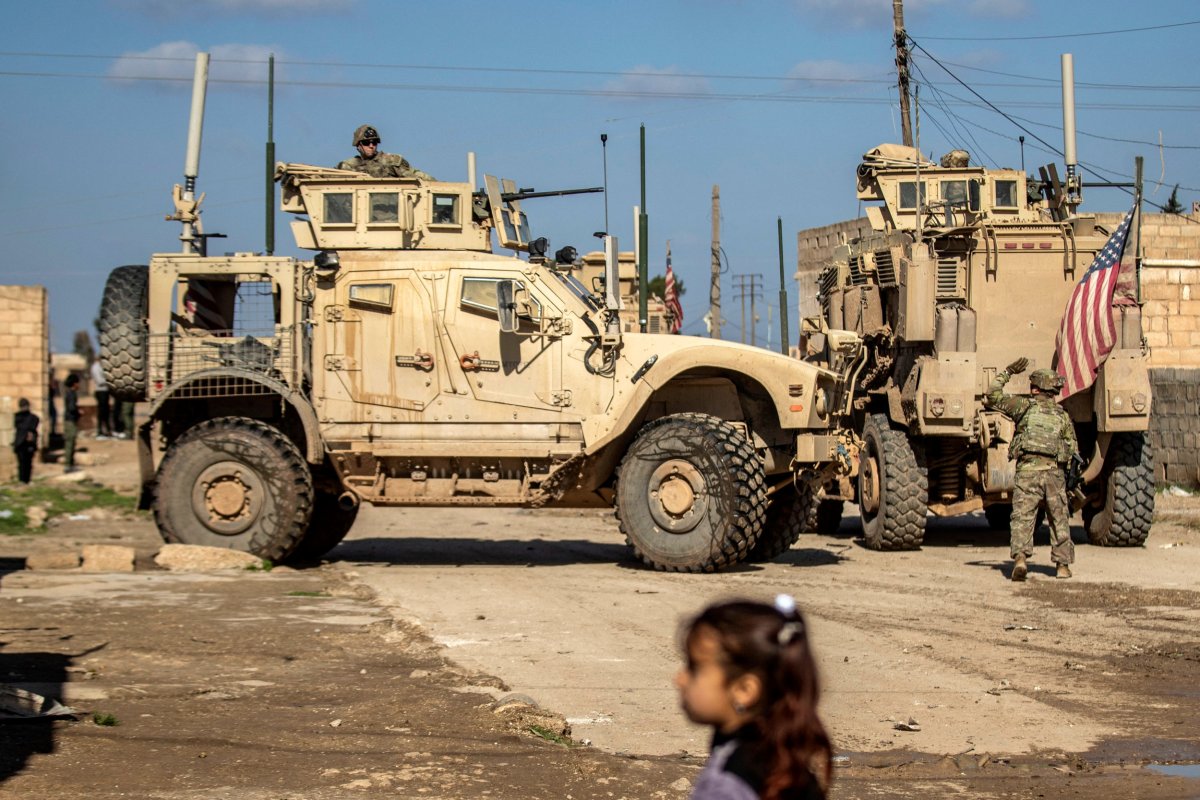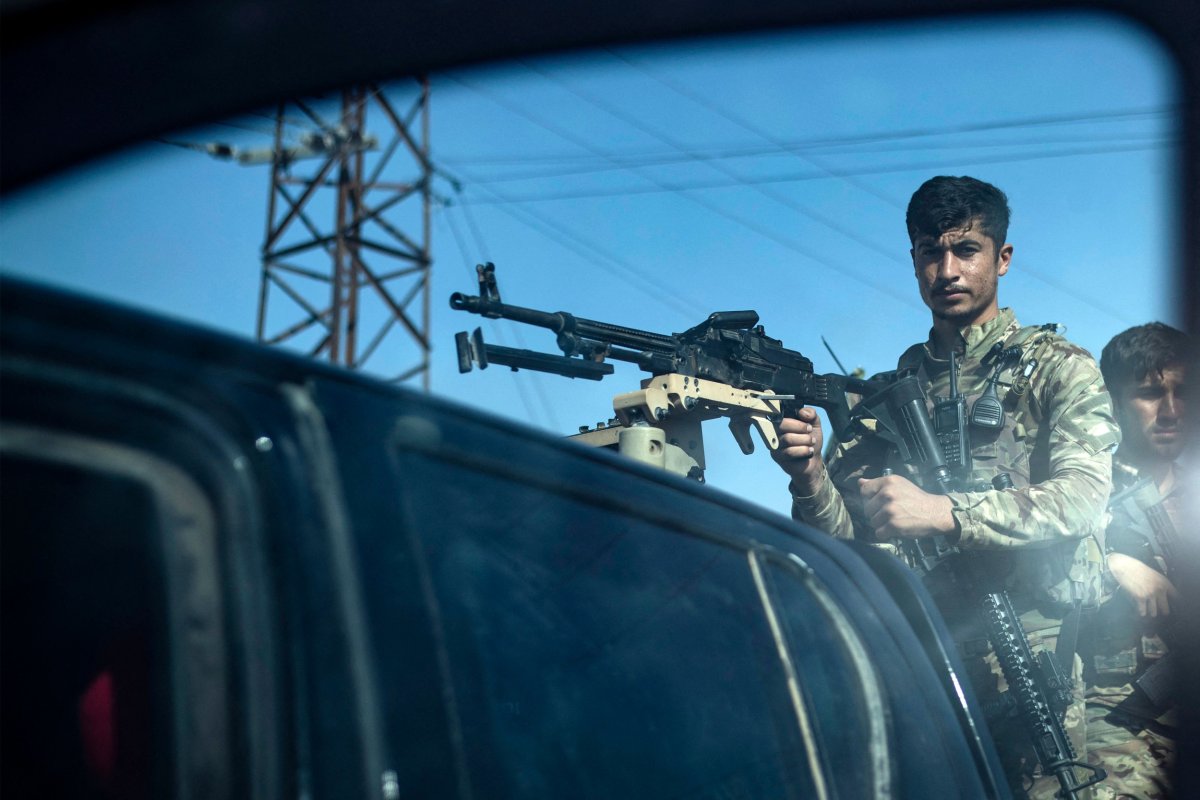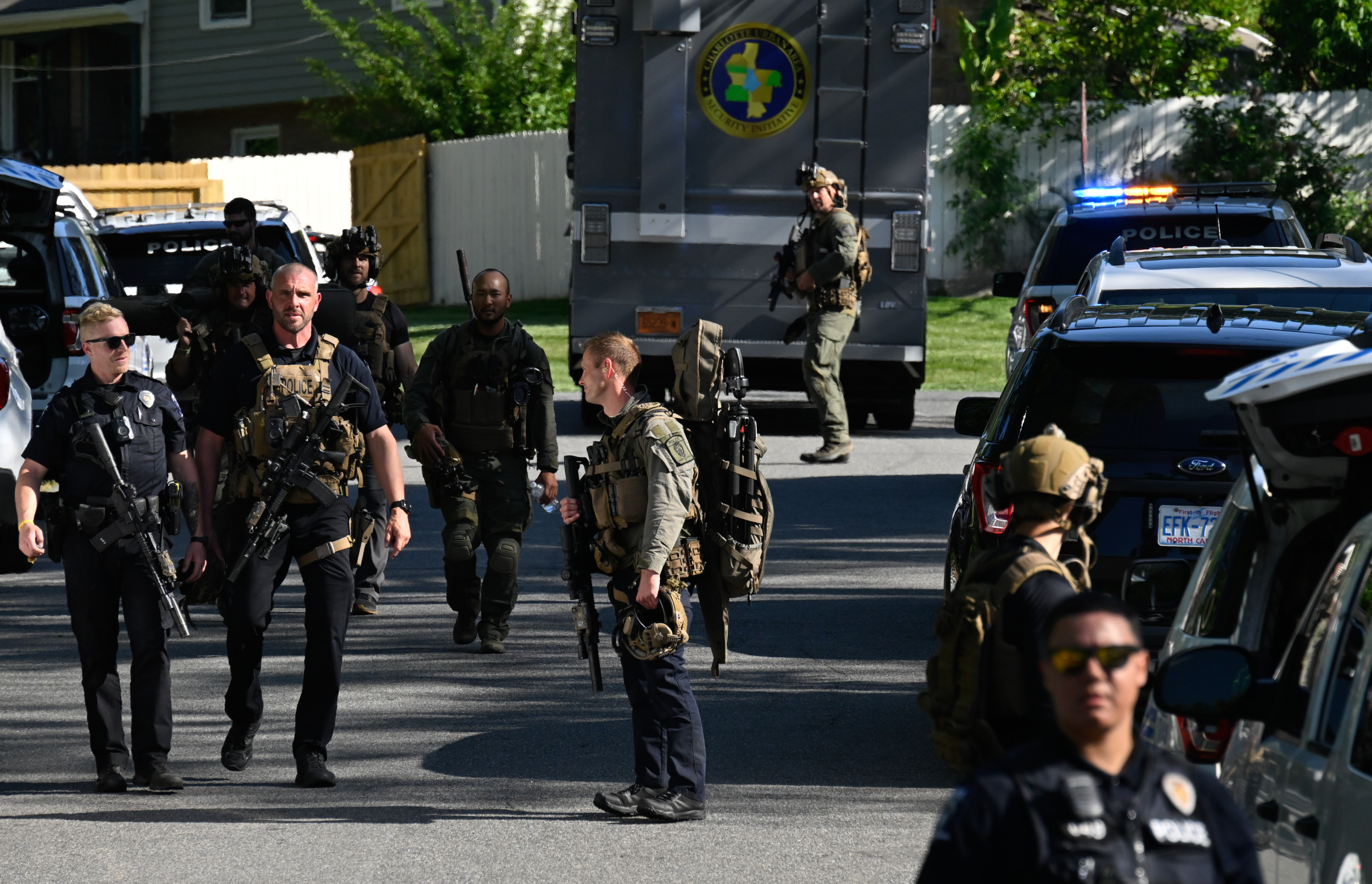President Joe Biden's administration has outlined what it argues is the legal justification for the U.S. military presence in Syria as Damascus ramps up calls for the United States to withdraw amid deepening unrest in the region.
A week after Syria's Mission to the United Nations told Newsweek that the presence of U.S. troops in the country "is illegal, illegitimate, and constitutes a flagrant violation of the United Nations Charter and international law," a State Department spokesperson said the Department of Defense's deployment—officially "for the sole purpose" of defeating the Islamic State militant group but increasingly mired in clashes with Iran-backed militias amid the ongoing war in Gaza—was well rooted in both U.S. and international law.
"As a matter of domestic law, U.S. 'defeat ISIS' activities are authorized by the 2001 Authorization for Use of Military Force," the State Department spokesperson told Newsweek. "We also have specific domestic statutory authorities that authorize DOD to provide support to the SDF's 'defeat ISIS' operations."
"Those authorities are found in certain provisions of the annual National Defense Authorization Act, the Defense Department's appropriations act and certain security cooperation authorities," the spokesperson added.
The 2001 AUMF was initially established to provide a legal basis for the launch of the U.S.-led "war on terror," especially in Afghanistan, following the 9/11 attacks conducted by Al-Qaeda. Since then, the resolution has been used to justify a wide range of operations across the Middle East and elsewhere.
When it comes to international law, the State Department spokesperson—citing Article 51 of the U.N. Charter, which provides states with an inherent right to self-defense—asserted that "the United States is using force in Syria against ISIS and providing support to opposition groups fighting ISIS in the collective self-defense of Iraq (and other States) and in U.S. national self-defense."

The primary group backed by the U.S. in Syria is the Syrian Democratic Forces, a Kurdish-led militia that runs a semi-self-ruling stretch of the country's northeast, officially called the Autonomous Administration of North and East Syria. The group's relationship with the central government in Damascus, led by Syrian President Bashar al-Assad, has been complex throughout the civil war that first erupted in 2011.
While both Assad, who is supported by Iran and Russia, and the U.S.-backed SDF have found a common foe in ISIS and an array of rebel militias, some of which are sponsored by U.S. NATO ally Turkey, they continue to differ on the political future of the country. The SDF has pushed for lasting autonomy in the northeast, while the Syrian government views a return to central rule as the best guarantee for security and stability.
Washington severed ties with Damascus early into the conflict, accusing the Assad administration of widespread human rights violations and war crimes. In the recent comments shared with Newsweek, the Syrian Mission tied the U.S. military presence and its support for the SDF to a range of alleged abuses.
"This illegal military presence serves and complements the destabilizing policies of the U.S. administrations," the Mission said, "including the support it provides for its terrorist tools and separatist militias, its continued plundering of Syrian national wealth, and the catastrophic repercussions of the unilateral coercive measures it imposes on the Syrian people."
And as unrest in Syria, still plagued by pockets of ISIS activity and ongoing clashes with the insurgent-held northwest, only deepened the outbreak of war between Israel and the Palestinian Hamas movement in Gaza, the Mission asserted that, "the current developments in the region should serve as an opportunity for the United States to rectify its misguided policies, which have only contributed to the destabilization of security and stability in Syria and the broader region."
The turmoil surrounding Gaza has seen a record spike in rocket and drone attacks against U.S. forces in both Syria and neighboring Iraq, largely claimed by a coalition of Iran-aligned militias calling itself the Islamic Resistance in Iraq. The violence took a new turn in late January when three U.S. troops were killed in a drone attack on the Jordan-Syria border, prompting Biden to order a set of airstrikes against alleged militia positions in Iraq and Syria, as well as the assassination of a senior militia official in Baghdad.
Since then, attacks on U.S. soldiers have been on the decline, but militias continue to vow revenge, and the deepening conflict in Gaza continues to set the stage for further escalations. Frequent airstrikes widely blamed on Israel in Syria also continue to stir outrage.
Facing a volatile security situation and mounting political pressure in the region, the Pentagon has convened a dialogue with Iraqi counterparts to discuss a transition of the U.S. military mission there, and reports have emerged of potential discussions toward a shift in the posture in Syria.
Sinam Mohamad, the representative in Washington, D.C., for the SDF's political wing, the Syrian Democratic Council, said she was aware of these talks regarding the fate of U.S. troops in Syria.
"We know that they are not going to stay in northeast Syria forever, but they are not going to leave tomorrow," Mohamad told Newsweek. "As long as ISIS is still in Syria and as long as the prisoners of ISIS are still a threat to the whole region and the world, the U.S. military will not leave."
"We notice recently an ISIS resurgence in northeast Syria," she added, "so still the presence of the Americans is essential now."

At the same time, Assad's position has been bolstered substantially in recent years as regional powers increasingly rebuilt relations with his government.
The 2024 Global Diplomacy Index published Sunday by the Lowy Institute found that "Damascus saw the most embassy re-openings" of any ranked city since 2017. This trend was included with high-level visits and interactions with influential players, such as Saudi Arabia and the United Arab Emirates, along with a return to the Arab League.
As Syria and rival Turkey continue to float potential reconciliation efforts, the SDF's position has been further challenged by rising resistance from local Arab tribal leaders. Meanwhile, Geir Pedersen, the United Nations special envoy for Syria, has continued to appeal for a ninth round of the Syrian Constitutional Committee, a U.N.-backed peace process that includes government, opposition and independent representatives, but not the SDF.
Mohamad expressed hope that Washington could still play a helpful role in leveraging the Syrian Democratic Council's position in talks with Damascus and other Syrian stakeholders in the quest for a lasting end to the nation's long-running strife.
"As for the SDC vision for Syria's political future, we see the dialogue among Syrians is so necessary among those who believe in democracy, equality and diversity," Mohamad said. "The SDC should be included in the political process, and the USA presence should support it."
"All Syrians should be included in the Constitutional Committee and any political process," she added. "I think the presence of the U.S. will help and should support the AANES region."
Uncommon Knowledge
Newsweek is committed to challenging conventional wisdom and finding connections in the search for common ground.
Newsweek is committed to challenging conventional wisdom and finding connections in the search for common ground.
fairness meter
To Rate This Article
About the writer
Based in his hometown of Staten Island, New York City, Tom O'Connor is an award-winning Senior Writer of Foreign Policy ... Read more
To read how Newsweek uses AI as a newsroom tool, Click here.








